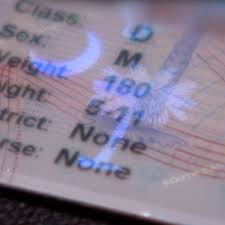Georgia Fake ID
Introduction
In today’s society, identification plays a critical role in many aspects of life—from accessing specific venues and purchasing age-restricted products to verifying one’s identity in official matters. One niche sector that has grown alongside the demand for such access is the market for fake IDs. Among these, the "Georgia Fake ID" has emerged as one of the most sought-after options in the industry. This article provides an in-depth analysis of the Georgia fake ID, covering everything from product features and market trends to its target audience and ethical concerns. We will also explore the motivations behind its demand and offer insights into how this product fits within the broader counterfeit ID industry.
Creative Headline Ideas:
- "Georgia Fake ID: The Art, Science, and Demand Behind Perfect Identification"
- "Breaking Down Georgia Fake IDs: What You Need to Know"
- "The Georgia Fake ID Market: What Sets It Apart and Who’s Buying?"
- "Behind the Scenes: How Georgia Fake IDs Dominate the Underground Market"
- "Authenticity Reimagined: A Comprehensive Look at Georgia Fake IDs"
Creative Description:
From gaining access to restricted places to mirroring the design of real state-issued identification, Georgia fake IDs have become a hot commodity for those looking to bypass age restrictions or establish an alternate identity. But why are they so popular? What sets them apart from other state IDs, and how do the manufacturers replicate the features that make them indistinguishable from the real thing? In this deep-dive article, we explore the craftsmanship, technology, and market forces behind the Georgia fake ID. We’ll also analyze the demographics driving demand and how this sector fits within the broader counterfeit ID market.
Table of Contents:
- Introduction to the Georgia Fake ID Market
- Product Features: What Makes Georgia Fake IDs Stand Out?
- Material Quality
- Holographic Elements
- Barcode Encoding and Scanning Technology
- The Legal Risks and Ethical Concerns of Using Fake IDs
- Market Analysis: Why Georgia?
- Popularity of Fake IDs in the U.S.
- Key Markets for Georgia Fake IDs
- Target Audience: Who is Buying Georgia Fake IDs?
- College Students
- Underage Consumers
- International Buyers
- Distribution Channels: How Are Georgia Fake IDs Sold?
- Online Dark Web Marketplaces
- Social Media Platforms
- Word-of-Mouth Networks
- Production and Craftsmanship: How Are Georgia Fake IDs Made?
- Technologies Behind Counterfeiting
- Authenticity Replication Tactics
- Innovations in the Fake ID Industry
- The Future of Fake IDs: Where Does Georgia Fit in?
- Increased Technological Countermeasures by States
- Emerging Trends in Counterfeit IDs
- The Role of Artificial Intelligence in ID Creation and Detection
- Conclusion
1. Introduction to the Georgia Fake ID Market
The fake ID industry is hardly a new phenomenon, with roots dating back to the time when official documentation first became widespread. Over the years, the market has evolved into a global, underground trade, supplying individuals with the means to obtain fake or counterfeit identification. The "Georgia Fake ID" is one of the most popular products in this category, known for its realism and high success rate in passing off as genuine identification.
Georgia fake IDs specifically stand out for their craftsmanship, use of state-specific elements, and wide acceptance across various locations. Whether it’s for underage drinking, entering clubs, or more sophisticated uses, the demand for these IDs has soared. In this article, we aim to dissect why this is the case, what features make Georgia IDs stand out, and who the target audience for such products is.
2. Product Features: What Makes Georgia Fake IDs Stand Out?
Material Quality:
The Georgia fake ID is crafted using advanced printing technologies and materials that closely resemble those used in genuine government-issued IDs. Manufacturers replicate the high-quality PVC and polycarbonate layers to ensure that the IDs feel authentic when handled.
Holographic Elements:
A key feature of modern IDs is the use of holograms to verify authenticity. Georgia fake IDs include detailed holographic overlays that mirror those found on real IDs. These holograms change based on lighting conditions and viewing angles, making it difficult for casual observers to distinguish between real and fake.
Barcode Encoding and Scanning Technology:
One of the most notable advancements in the fake ID market is the inclusion of scannable barcodes. Georgia fake IDs come with fully functional magnetic stripes and 2D barcodes that can be scanned at liquor stores, clubs, and even some government establishments. This level of technological sophistication has made these IDs some of the most reliable and widely used in the fake ID market.
3. The Legal Risks and Ethical Concerns of Using Fake IDs
While Georgia fake IDs are high in demand, they come with significant legal risks. In the United States, using a fake ID is a misdemeanor in most cases, but it can result in more serious charges depending on the context. Penalties include fines, community service, and in some cases, jail time. For many college students and underage users, the risk of legal repercussions is often outweighed by the perceived benefits.
Ethically, the use of fake IDs also raises concerns. Many argue that such practices contribute to a culture of dishonesty and lawbreaking, especially among younger generations. Furthermore, fake IDs can be used in more nefarious ways, such as identity theft and fraud.
4. Market Analysis: Why Georgia?
Popularity of Fake IDs in the U.S.
In the U.S., fake IDs are widely used, especially among college students and teenagers seeking to bypass the 21-year-old drinking age restriction. Certain states have become notorious for the distribution of these fake IDs, and Georgia is one such state. The quality of the ID and its acceptance rate across various states make it a go-to for many.
Key Markets for Georgia Fake IDs
The primary market for Georgia fake IDs is college students in the southeastern United States, though the demand extends nationwide. Many buyers are drawn to the Georgia ID because it has fewer design complexities compared to other states’ IDs, making it easier to replicate. This does not mean it is easy to forge, but that experienced counterfeiters have mastered the elements that are challenging to reproduce.
5. Target Audience: Who is Buying Georgia Fake IDs?
College Students
Unsurprisingly, college students are the largest demographic purchasing fake IDs, including Georgia ones. This group often seeks IDs to gain access to bars and clubs, or to purchase alcohol and cigarettes. The pressure to fit in socially and the restrictive legal drinking age of 21 in the U.S. create a perfect storm for the fake ID industry to thrive.
Underage Consumers
Teenagers under the legal drinking age also contribute significantly to the market. For high school seniors who are preparing to enter college, obtaining a fake ID has almost become a rite of passage.
International Buyers
Another audience for Georgia fake IDs includes international students or workers who might not have access to certain privileges due to the legal constraints of their visa or immigration status. This is a lesser-known but growing segment of the fake ID market.
6. Distribution Channels: How Are Georgia Fake IDs Sold?
Online Dark Web Marketplaces
The proliferation of fake ID production has largely been driven by the growth of the dark web. Buyers can easily access websites that offer fake IDs for sale, with Georgia being one of the most popular states offered. These websites often offer customization options, allowing users to select specific features and information to be included on their fake ID.
Social Media Platforms
In recent years, social media platforms such as Instagram and Snapchat have also become hubs for fake ID distribution. Sellers advertise their services through stories and posts, with buyers contacting them privately for transactions.
Word-of-Mouth Networks
Despite the availability of online purchasing, many fake ID transactions still occur through word-of-mouth. College campuses, in particular, have networks of students who know reliable fake ID manufacturers and distributors.
7. Production and Craftsmanship: How Are Georgia Fake IDs Made?
Technologies Behind Counterfeiting
Modern counterfeiters use sophisticated printing technologies, including laser printers and special engraving machines, to replicate state-issued IDs. These machines are capable of reproducing the intricate details found on Georgia’s real IDs, such as fine text, microprinting, and laser-engraved elements.
Authenticity Replication Tactics
Some of the advanced features that make Georgia fake IDs so realistic include the use of UV inks and specialized laminates. These materials react similarly to real IDs under ultraviolet light and at scanning checkpoints, making it difficult for bouncers or bartenders to detect the fakes.
Innovations in the Fake ID Industry
The fake ID industry is constantly evolving. New techniques, such as holographic replication and enhanced 3D barcodes, are emerging to keep up with increased scrutiny from law enforcement and vendors. Georgia fake IDs remain at the forefront of these innovations due to their established demand and the challenges posed by state-specific elements.
8. The Future of Fake IDs: Where Does Georgia Fit in?
Increased Technological Countermeasures by States
As state governments invest in new technologies to make IDs harder to counterfeit, fake ID producers are forced to adapt. In Georgia, recent efforts have been made to update the design of their driver’s licenses, including the use of clear windows and more complex holograms. The arms race between states and counterfeiters is ongoing, with each side striving to outdo the other.
Emerging Trends in Counterfeit IDs
One trend is the move toward digital IDs, which could significantly disrupt the counterfeit ID market. However, for the time being, physical IDs remain the standard for most institutions, meaning that Georgia fake IDs will likely continue to be in demand for the foreseeable future.
The Role of Artificial Intelligence in ID Creation and Detection
Artificial intelligence (AI) is poised to play a significant role in both the creation and detection of fake IDs. AI-driven printers can automate many of the labor-intensive processes involved in making counterfeit IDs, allowing for faster production times and greater accuracy. On the other side, law enforcement agencies are beginning to adopt AI to better detect fake IDs at checkpoints and scanning stations.
9. Conclusion
The Georgia fake ID market has grown into a highly sophisticated, well-established niche within the larger counterfeit ID industry. With state-of-the-art replication techniques, including barcode encoding and holographic overlays, these IDs have earned a reputation for reliability and authenticity. The primary audience—comprising college students, underage consumers, and international buyers—continues to fuel demand for these products, even as legal risks and ethical concerns persist.
As states implement more advanced security features and the industry evolves, it’s clear that the Georgia fake ID will remain a key player in the ongoing cat-and-mouse game between counterfeiters and authorities.
 The Role of Fake IDs in Shapin
The Role of Fake IDs in Shapin
 Benefits of Scannable IDs: Mak
Benefits of Scannable IDs: Mak
 Scannable Kansas Fake ID
Scannable Kansas Fake ID
 Counterfeit ID consequences
Counterfeit ID consequences